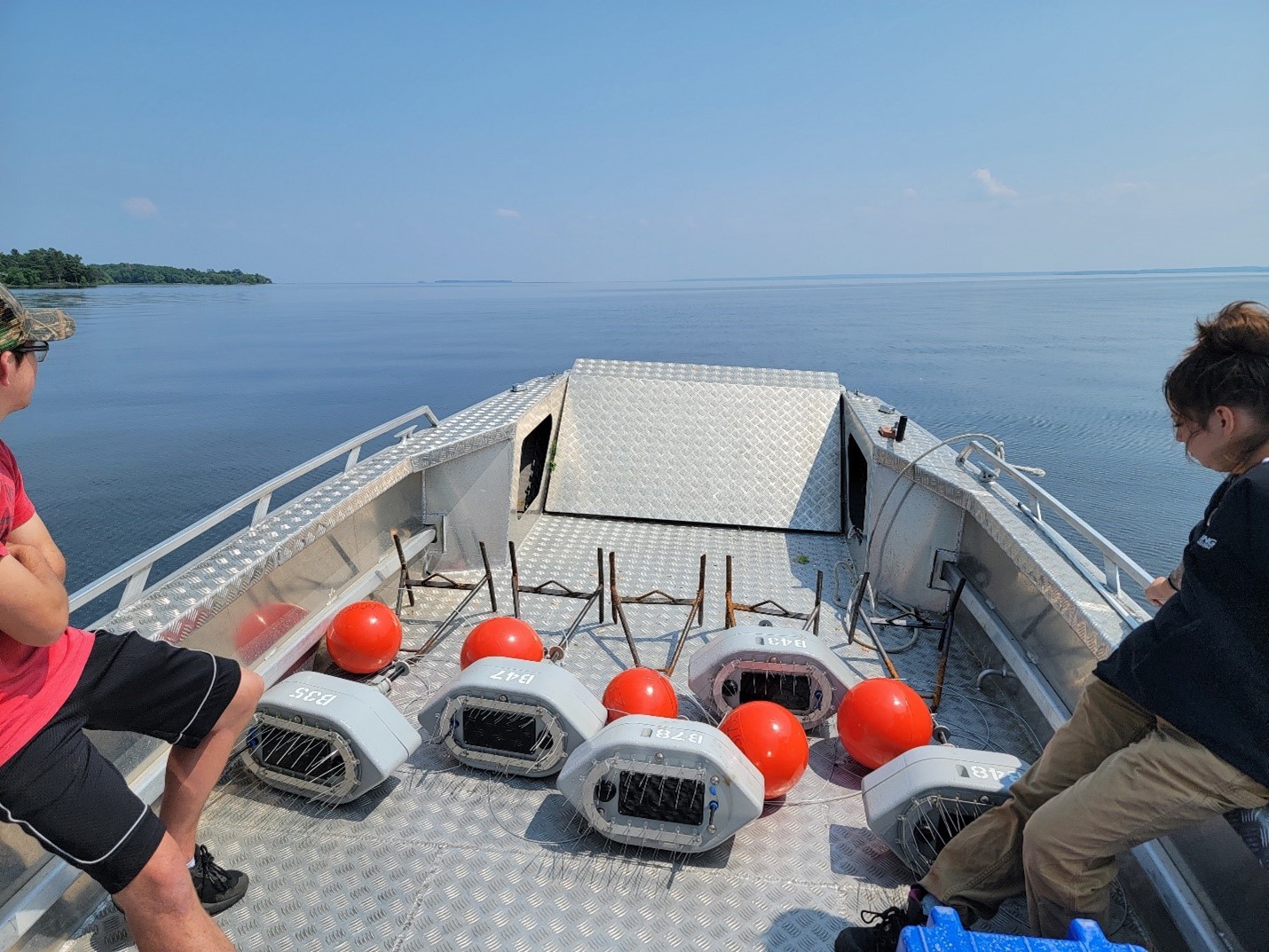Nipissing First Nation's Environment Department is once again piloting novel technologies to combat algal blooms in the Great North Bay and shores adjacent to the Jocko Point Community shoreline. A total of five (5) EMF-1000 units were deployed (Figure 1) in late June 2023.
The pilot study began in the spring of 2022 as part of the Department's Northshore Water Quality and Response Program. To preserve and enhance water quality along the western portions of the Great North Bay area and the Jocko Point Community shoreline, NFN, in partnership with EM-Fluids, deployed three EMF-1000 units. The units (5) were deployed on June 06, 2022, and were part of a yearlong pilot project investigating novel and natural solutions to combat algal blooms and high nutrients within the study area. As in the 2022 pilot study, water samples will be collected and analyzed throughout the study by the Department.
The EMF-1000 uses a proprietary electromagnetic signal (Less than 1 watt) that propagates throughout the water column (up to 40 acres), increasing interfacial gas transfer rates across the water-air boundary. This allows oxygen and other critical gasses to diffuse into the water faster, improving aerobic conditions in the water body, enhancing productivity, and reducing excessive nutrients.
The primary objective of this pilot was to test the unit's ability to increase aquatic gas exchange and suppress algal growth along the shoreline. While the study area has seen intermittent algal blooms, the 2022-2023 study will examine the unit's impact on future events.
In summary, the EMF-1000 is expected to impact the waterbody by:
- Enhancing the rate of gas exchange across the water body surface
- Increase oxygen throughout the waterbody
- Improve aerobic conditions and associated microbes while suppressing anaerobic microbes responsible for foul odours
- Improve organic / detritus digestion by aerobic microbes
- Reduce excess biological nutrients (Nitrogen, Phosphorus, etc.)
- Increase aquatic animal populations and suppress the algal overgrowth
- Other beneficial impacts specific to pre-existing site conditions
The units also collect data on the following parameters:
- Dissolved oxygen
- Water temperature
- Location data (GPS)
Results from the 2022 pilot study indicated nutrient levels remained stable in the Bay and Cockburn Lake, with no algal blooms reported in the summer and fall of 2022 for both study areas. This year's study will build on the success of this pilot project.
Update!
The algae trackers were also deployed in the summer of 2024 and are currently getting ready to be shipped out for maintenance, in preparation for deployment in the spring of 2025! Data to come soon.


